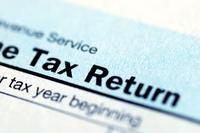Closing costs are an inherent part of any VA home loan. Processing and approving a VA home loan application requires information and services from more than just your VA lender. And if you don't watch out, you'll pay more than you have to.
VA loans limit the types of closing costs that veterans can pay but even with those limitations, there are closing costs. Here are some ways to reduce or avoid paying for them altogether.
Closing Costs the VA Allows
What are the fees that the veteran may pay for? One of the easiest ways to remember is by using the acronym ACTORS. This stands for appraisal, credit report, title insurance, origination fees, recording and survey or abstract charges. The VA funding fee is also a charge but may be rolled into the loan amount and not paid out of pocket.
This list leaves a lot of other players out of the picture and is a wonderful advantage that eligible VA borrowers have that others do not. What sort of fees? Common fees charged that veterans are not allowed to pay include loan processing, loan underwriting, document prep fees, escrow charges, settlement fees and a host of others. Added up, these fees can be more than a few thousand dollars, depending upon the size of the loan amount, locale and other factors.
So how much can the fees be for the charges that the veteran is allowed to pay? Let's look at a home with a sales price of $300,000, here's what you might see:
| Appraisal | $500 Credit report | $50 Title | $3,000 |
| Origination | $3,000 Recording | $100 Total | $6,650 |
Even though VA loans limit the amount of costs the veteran may pay, it still can be a sizable number. Here's how to save or eliminate them.
Seller Concessions
The most convenient way is to have the seller pay them. When making an offer on a home, your agent can ask that the seller pay a certain percentage or a particular amount of your closing costs. VA guidelines allow a seller to pay up to 4 percent of the sales price of the home to go directly toward the veteran's closing costs. In this example, that could be up to $12,000, well above what the borrower might pay.
If not all of the costs, perhaps just some of them. If your offer says something to the effect of "We'll pay your asking price but we want you to pay all of our closing costs up to 4 percent of the sales price." What can the seller do? Three choices:
- Pay all of them
- Pay some of them
- Pay none of them
Lender Credit
Another way to reduce or eliminate VA loan closing costs is having the lender provide a lender credit. How does a lender credit work? When speaking with your loan officer about various interest rate options, along with a loan term such as a 30 or 15 year fixed, you will also be given a list of rates with points and rates without points.
Points, called "discount points" in the industry, are represented as a percentage of the loan amount. For each point paid, the interest rate can be reduced by about one-quarter of one percent on a 30 year mortgage. You might be quoted something like, "4.50 percent with no points or 4.25 percent with one point." On a 30 year loan of $300,000, one point will cost you $3,000.
Conversely, a lender can actually increase your interest rate by one-quarter of one percent or more, and provide you with a lender credit to be applied to your closing costs. Using this same example, you might be quoted 4.50 percent with no points, 4.75 percent with no points and a $3,000 credit or 5.00 percent for a $6,000 lender credit.
It's your choice and something you need to review with your lender. Your monthly payment will be slightly higher, but then again you saved $6,000.
There's no getting around closing costs on a VA loan, it's simply a matter of who pays for them. Properly structured, you may not have to.
Ready to Get Started?
If you're ready to get started, or just want to get more information on the process, the first step is to get multiple rate quotes with no obligation. You can then discuss qualifications, debt to income ratios, and any other concerns you have about the process with the lenders.










